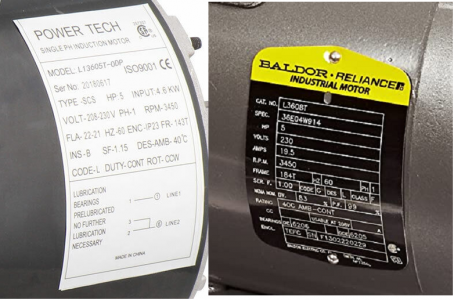- Joined
- Jun 12, 2014
- Messages
- 4,828
If you have a low speed compressor, I would recommend going with a 1750 RPM motor, if high speed then one can go with a 2 pole motor. I really question the rating and durability of these inexpensive motors for hard loads like a compressor, Chinese 5Hp in a 143T frame size vs. the Baldor/WEG equivalent 182/184T frame size for the 3450 RPM and 1750 RPM motors. Also note the lower temperature insulation rating. WEG is commonly used for compressors and a bit of a middle road price wise.





